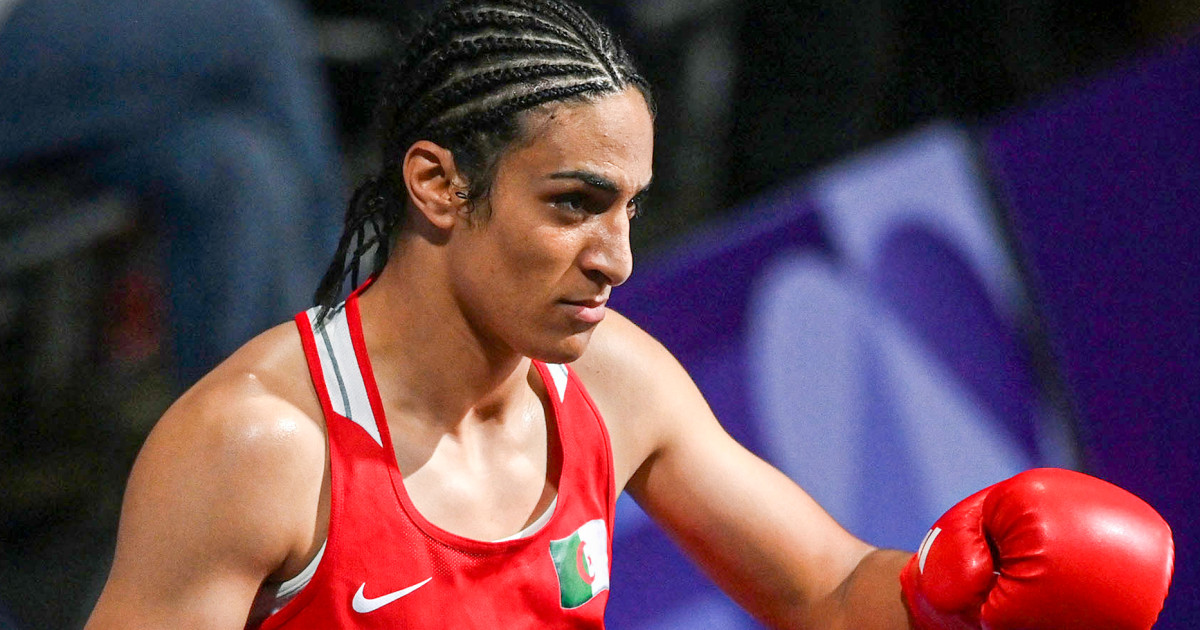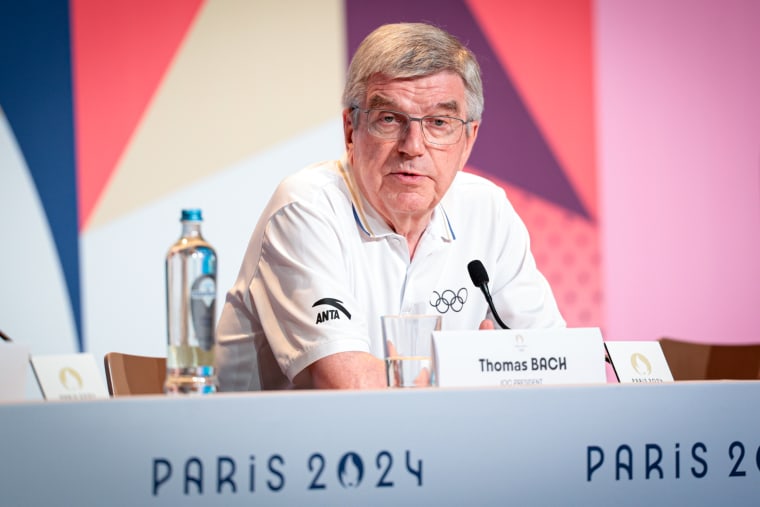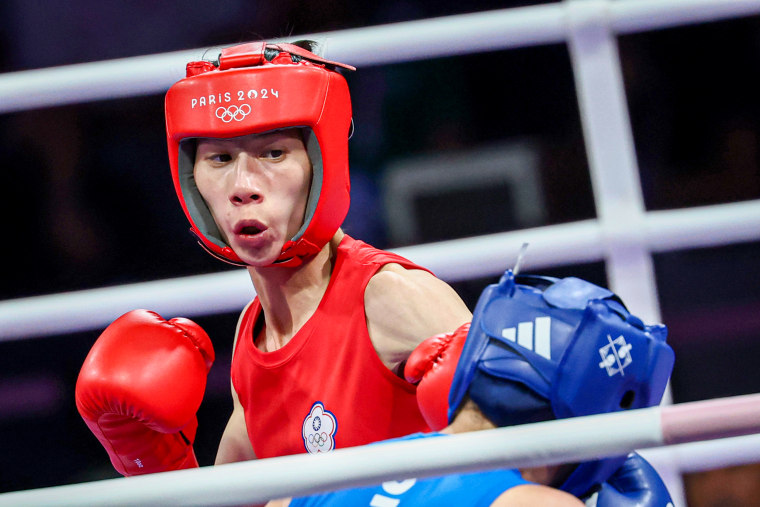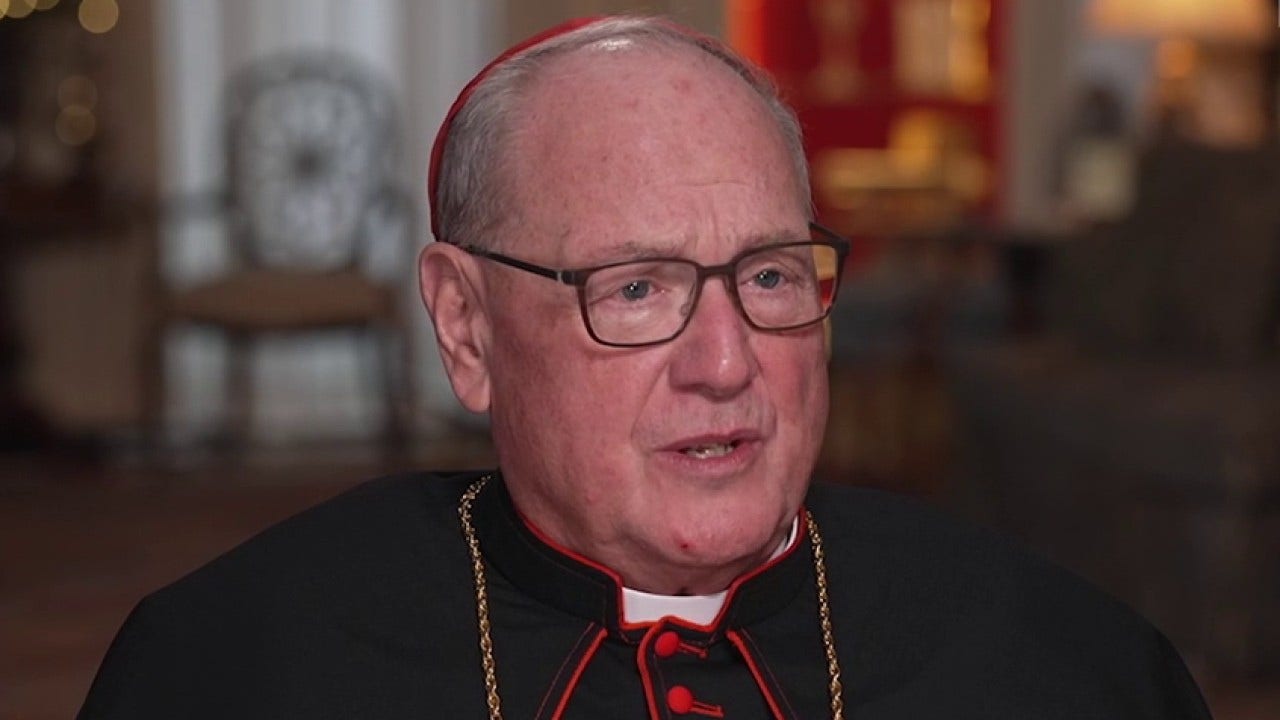World
Boxer Imane Khelif guaranteed a medal as IOC condemns questions about her gender identity

VILLEPINTE, France — Algerian welterweight Imane Khelif, backed by a sizable cheering section, beat Hungarian Anna Luca Hamori in a unanimous decision on Saturday, clinching an Olympic medal.
Her victory came just hours after International Olympic Committee President Thomas Bach defended its decision to allow her and fellow boxer Lin Yu-ting to compete, saying concerns over their gender identity are “totally unacceptable.”
With Khelif’s latest win, she is guaranteed at least a bronze medal.
“I dedicate this medal to the world, and to all the Arabs and I tell you, ‘Long live Algeria!’” she told reporters in a wild scrum after the match.
She appeared to fight back tears and had an Algerian flag wrapping around her back as she spoke.
“I want to tell the entire world that I am a female, and I will remain a female,” she said.
During her fight on Saturday, Khelif appeared to have a sizable cheering section chanting her name, “Imane, Imane, Imane!” and waving Algerian flags.
Five judges scored each of the three rounds for Khelif. The judges had it 10-9 for every round except for one who called the second round, 10-8, for the Algerian.
Hamori had boasted she wasn’t afraid of Khelif and fueled allegations that the Algerian was not a woman. But at the end of the match, it appeared the combatants exchanged pleasantries with each other and their corners.
Before the match, Bach forcefully defended the inclusion of Khelif and Yu-ting in the Olympics and blasted the pushback as “hate speech.”
“We have two boxers who were born as women, who have been raised as women, who have a passport as a woman, and who have competed for many years as women,” Bach said.
Questions surrounding Yu-ting’s and Khelif’s gender identity surfaced after it was revealed they had been disqualified from competing with women at a global event last year, but were cleared by the IOC to compete in the women’s 66-kilogram and women’s 57-kilogram matches at the Paris Games.
The debate was further inflamed Thursday after Angela Carini of Italy quit 46 seconds into her match against Khelif, resulting in an automatic win for the Algerian boxer.
Carini stopped the fight after only a few punches were exchanged and refused to shake Khelif’s hand. Carini, 25, fell onto the floor in tears.
Bach said there was “never any doubt” about Yu-ting and Khelif being women. Both boxers have always competed in women’s divisions and there’s no indication that they identify as transgender or intersex, the latter referring to people born with sex characteristics that do not fit strictly into the male-female gender binary.
“What we see now is that some want to own the definition of who is a woman,” Bach said, adding: “All this hate speech, aggression and abuse … is totally unacceptable.”
At a boxing event last year, the athletes failed to meet gender eligibility tests at the Women’s World Boxing Championships in New Delhi by the International Boxing Association. They were both disqualified after sporting officials said they failed an unspecified test because they allegedly had male chromosomes.
The IAB, whose president is Umar Kremlev of Russia and is an associate of President Vladimir Putin, claimed the fighters had failed unspecified eligibility tests. The decision came shortly after Khelif beat Russian boxer Azalia Amineva, who was previously undefeated.
The IAB’s legitimacy has been called into question, with USA Boxing terminating its relationship with that body last year, citing the “ongoing failures of IBA leadership.”
Khelif, 25, who made her Olympic debut at the Tokyo Games, has said her disqualification was a “conspiracy.”
Her father, Amar Khelif, said the attacks against the athlete are “immoral.”
“It is not fair,” he recently told Reuters.
He said his daughter has always loved sports since she was a child and used to play football. Amar Khelif insisted that she was born a female.
“She made us proud many times, she honored our country and our flag many times and she always made us happy with her results,” he said. “These critics aim to destabilize her to fail in the wrestling ring but she is a champion and she will remain a champion.”

Carini said after her loss on Thursday that she ended the match because of a “severe pain” in her nose. She said that she was not qualified to make decisions on whether Khelif should be allowed to compete.
Others, including “Harry Potter” author J.K. Rowling, who has often come under fire over her anti-trans comments, quickly criticized the match and the IOC’s decision.
“A young female boxer has just had everything she’s worked and trained for snatched away because you allowed a male to get in the ring with her,” Rowling wrote, reposting a video of an IOC official speaking on the committee’s mental health and safeguarding initiatives.
“You’re a disgrace, your ‘safeguarding’ is a joke and #Paris24 will be forever tarnished by the brutal injustice done to Carini,” Rowling added.
Former President Donald Trump wrote on his social media site, Truth Social, in all caps: “I will keep men out of women’s sports!”
Others came to Khelif’s defense and celebrated her win.

“I strongly condemn the baseless attacks on our athlete, Imane Khelif, by certain foreign outlets,” Abderrahmane Hammad, Algeria’s minister of youth and sports, wrote on X.
He slammed questions about her gender identity as “cowardly attempts to tarnish her reputation.”
Ismaël Bennacer, a soccer player for the Algerian national team as well as the club AC Milan, wrote that he fully supports Khelif.
“Her presence at the Olympic Games is simply the result of her talent and hard work,” he said on X.
Khelif acknowledged her supporters, posting an Instagram drawing of Algerians, men and women, rallying to her side.
The contingent of supporters on Saturday chanted “Imane, Imane, Imane!” and waved Algerian flags as Khelif fought her spirited opponent.
“People tried to disqualify Imane, for nothing, for no reason. She was born female. She will die a female,” said Taha Oundrouis, a 41-year-old physician from Paris.
“If you cannot prove she’s a male, then you must shut up and leave her alone,” Oundrouis said.
The Algerian fans said Khelif has been mistreated.
“She has been in competition before and no one had a problem,” said Moncef Mahdgoubi, a 35-year-old ear, nose and throat physician.
“She’s a real female. She never changed her orientation, her sex,” Mahdgoubi said. “Her father showed photos of her as a child. She’s grown up as a female.”
The National Black Justice Collective, a civil rights organization that aims to protect Black LGBTQ people, said it stands in solidarity with Khelif.
“Simply put, Imane Khelif and the other athletes being targeted met the criteria to compete in the Olympics. They deserve to compete as much as every other athlete who trained, prepared, and qualified for the most significant opportunity in their sport. An opportunity now dampened by internet trolls and evangelical zealots consumed with ignorance and a disregard for how weaponized hate can threaten one’s livelihood and life,” the organization said in a statement.
Nonbinary Olympic American runner Nikki Hiltz called out transphobia at the Olympics.
“Anti-trans rhetoric is anti-woman,” she wrote in an Instagram story on Friday. “These people aren’t ‘protecting women’s sports,’ they are enforcing rigid gender norms and anyone who doesn’t fit perfectly into those norms is targeted and vilified.”
David K. Li reported from Villepinte, Minyvonne Burke from Pittsburgh and Rima Abdelkader reported from Stamford.










